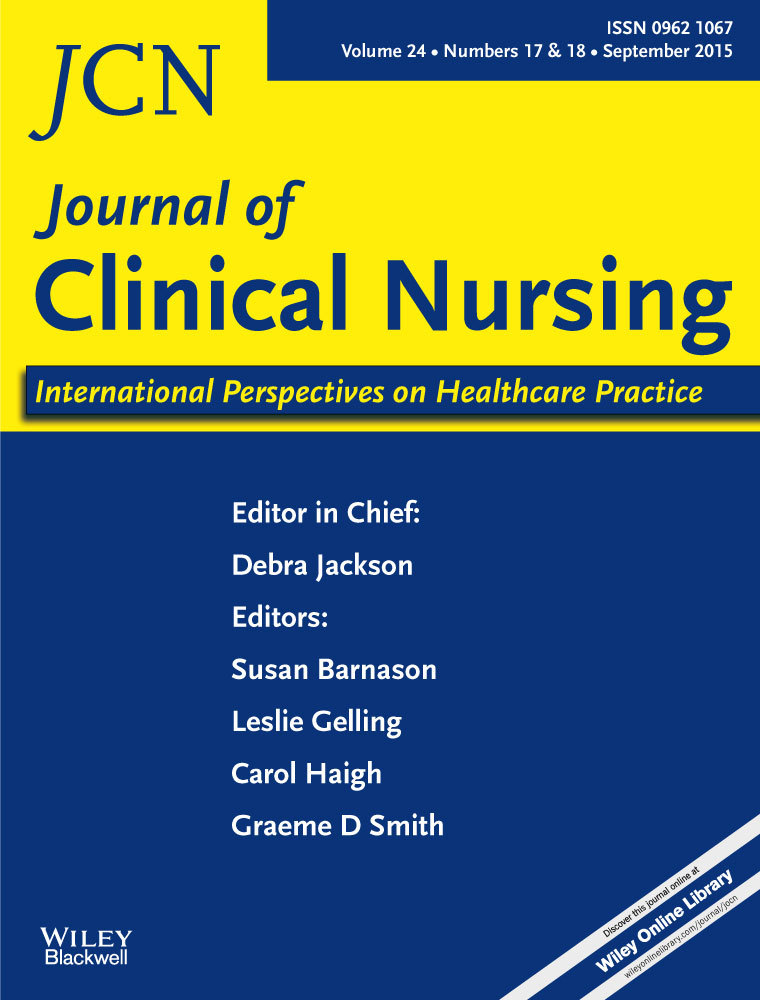Long-term consequences of pain, anxiety and agitation for critically ill older patients after an intensive care unit stay
Abstract
Aims and objectives
This study investigated whether an intensive care unit (ICU) stay is associated with persistent pain, anxiety and agitation in critically ill older patients.
Background
Patients hospitalised in the ICU are at risk for experiencing pain, anxiety and agitation, but long-term consequences for older patients have rarely been investigated.
Design
Prospective nonrandomised longitudinal study.
Methods
Pain, anxiety and agitation, measured with a numeric rating scale (0–10), were assessed in older patients (≥65 years) hospitalised in the medical-surgical ICU of a university hospital. Agitation during the ICU was assessed with the Richmond Agitation-Sedation Scale. Data collection occurred during the ICU, one week after the stay and six and 12 months after hospital discharge. Data were collected from an age-matched community-based comparison group at recruitment and after six and 12 months. Study recruitment took place from December 2008–April 2011.
Results
This study included 145 older patients (ICU group) and 146 comparison group participants. Pain was higher in the ICU group one week after discharge, although pain levels in general were low. Both groups reported no or low levels of pain after six and 12 months. Anxiety levels in general were low, although higher in the ICU group one week after ICU discharge. After six and 12 months, anxiety in both groups was comparable. Throughout the study, levels of agitation were similar in both groups.
Conclusions
Critically ill older patients did not experience increased pain, anxiety or agitation 12 months after an ICU stay.
Relevance to clinical practice
This study positively shows that an ICU stay is not associated with persistent pain, anxiety and agitation thus providing additional information to older patients and their families when making intensive care treatment decisions. Adequate management of pain during and after an ICU stay may minimise the suffering of older patients.




